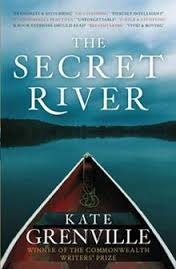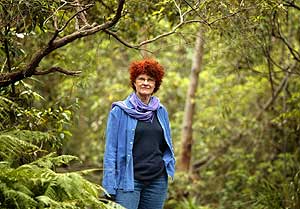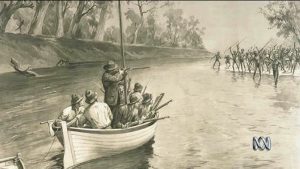The Secret River by Kate Grenville, Australia, 2005
 This is a beautiful book, intelligently written. Grenville’s wonderful attention to detail results in a myriad of small word paintings, each of which add yet another layer to our understanding of both early nineteenth-century London and Sydney. Not only can we see the sights, we can also smell the smells and feel the textures. We become immersed in the places; we become part of Grenville’s narrative.
This is a beautiful book, intelligently written. Grenville’s wonderful attention to detail results in a myriad of small word paintings, each of which add yet another layer to our understanding of both early nineteenth-century London and Sydney. Not only can we see the sights, we can also smell the smells and feel the textures. We become immersed in the places; we become part of Grenville’s narrative.
The book centres around William Thornhill, who, after winning a reprieve from hanging for a minor thieving offence, is sent to Sydney town with his wife, Sal, and their small child. It is obvious that the family feels that it has landed at the end of the earth, but William, relieved that he is still alive, sets about to turn the situation to his own advantage. For William, his entire focus is set on owning a place of his own. For Sal, her focus is set on returning Home.
 |
Photo of Kate Grenville from The Age
When Thornhill lays claim to one hundred acres on the shores of the Hawkesbury River north of Sydney, he can see his dream taking shape. But there are others who were obviously there before him – people who do not worry about farming the soil but who seem to manage anyway. Thornhill and the other settlers along the banks of the Hawkesbury want the others gone.
 |
| ABC Splash |
While it is obvious that Grenville’s sympathy is with the indigenous people, she is simply the fact presenter, and the reader is left to make up his/her mind. It is somewhat thought-provoking that while Thornhill and the others suffered inhumane treatment when living in England, once emancipated they gradually assume similar characteristics to their earlier tormentors. Their eagerness to finally be able to own something and, thereby, to achieve some degree of social status, put them in direct conflict with a people where the idea of personally owning anything, especially land, is completely incomprehensible. With hindsight we can wonder if things might have worked out differently had there had been less painful baggage on the part of the ex-convicts and a more understanding, less ignorant, attitude on the part of the people in charge. Unfortunately, we will never know.